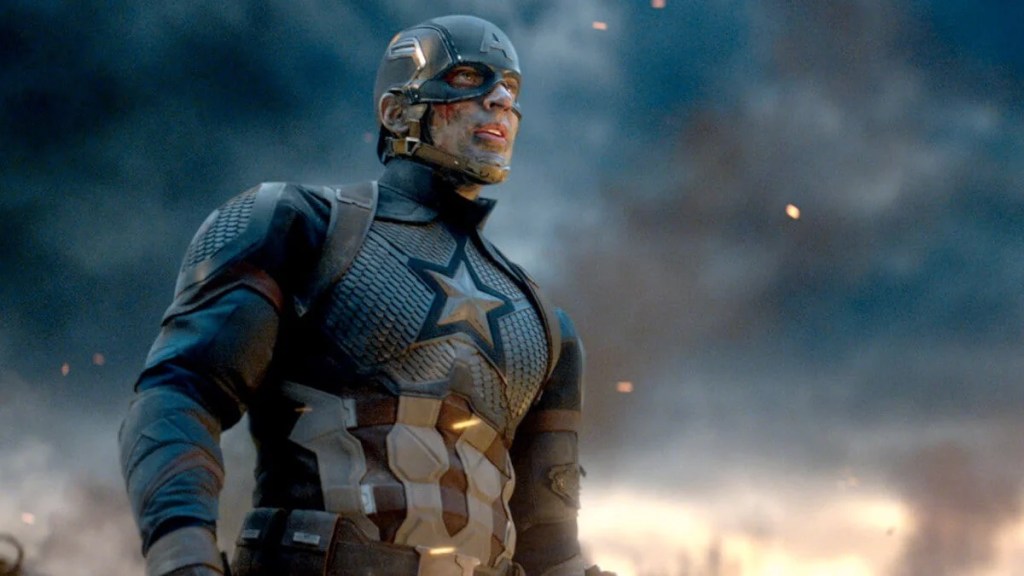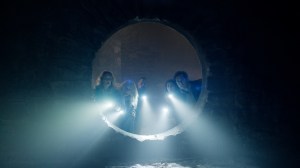Fans are still debating how the ending of Avengers: Endgame left Captain America. The film was the swansong for many of our favorite Avengers, including Robert Downey Jr.’s Iron Man, Scarlett Johansson’s Black Widow, and Chris Evans’ Captain America. Iron Man and Scarlett Witch sacrificed their lives so Earth’s Mightiest Heroes could defeat Thanos, but Steve Rogers survived, even traveling to the past to return the Infinity Stones. We also learned that Cap stayed in the past to live a life with Peggy Carter. This is the crux of the debate regarding Captain America and Avengers: Endgame, and fans are still trying to make sense of it all.
Videos by ComicBook.com
A user on Reddit created a post titled “I’m so confused about Cap’s time travel,” which is referencing Avengers: Endgame. They are making the case that even though Captain America went into the past and changed events, he still lived his life — aging into an old man — in the main universe, also called the “sacred timeline.”
“For one thing, we know from Loki that there was a single sacred timeline. And if it was formed from the universe in which Steve stays with Peggy, then Peggy’s husband was always Steve,” the Redditor writes.
“Secondly, we’ve already seen a time loop in Ms. Marvel where Kamala ended up in the past to help her grandmother, and it ended up being: the grandmother’s stories of her rescue as a child that rescue was always Kamala. Which means that some time travel is already part of the main universe, and others create new alternate realities.”
[RELATED: Avengers Star Didn’t Return for Endgame Over Reported Pay Dispute]

The user goes on to say that not all time travel causes alternate timelines. Sometimes, time travel becomes part of the existing universe, like what happened in Ms. Marvel. The same argument can be made with Steve staying in the past with Peggy. Of course, commenters chimed in to share their thoughts on how time travel and timelines work in the Marvel Cinematic Universe.
“As with anything time travel, especially one in a massive large shared universe, there will probably be contradictions. But ultimately you have to take the movie you’re watching at its word or none of it works,” a user responds on the original post.
“In Endgame, its established that the time travel they were using is more like timeline travel. Any changes are just creating new timelines. We see the fallout of this in Loki, where a new timeline was created due to Loki escaping. It’s also stated like a dozen times. ‘Changing the past does not change the future.’”
They go on to add that the sacred timeline is a collection of similar timelines, and not just a single one. “[People] fail to realize that simply traveling to the past/future does not cause a branch & thus, a loop can happen,” another user states.
Time travel is always a risky endeavor because there have been so many rules established in other projects across TV and film. Avengers: Endgame addressed some of those concerns, bringing up films like Back to the Future and Hot Tub Time Machine as examples.
Avengers: Doomsday is the next Avengers movie on the slate from Marvel Studios. Robert Downey Jr. returns, but instead of playing Iron Man, he’ll be portraying the iconic Marvel villain Doctor Doom. Joe and Anthony Russo also return to the MCU to direct Avengers: Doomsday. The movie opens in theaters on May 1, 2026.








